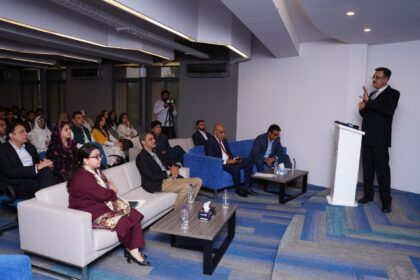KOICA has approved a PCRWR-led initiative under the Pakistan–Korea Partnership Program to establish an automated groundwater monitoring network in Islamabad and Sindh after three detailed feasibility assessments. The project, formally titled Project for Improving PCRWR Research Infrastructure and Enhancing Integrated Water Resources Management Capacity, is scheduled for implementation from 2026 to 2032 with an estimated budget of up to USD 15 million.
The new network will provide real-time data on groundwater levels and quality, giving federal and provincial water managers better information to plan extraction, protect aquifers and address contamination risks. Enhanced groundwater monitoring will support more responsive water allocation and long-term planning across urban and rural supply zones.
Beyond physical infrastructure, the programme includes capacity building for PCRWR staff in advanced groundwater and water quality modelling techniques. KOICA has also approved four postgraduate scholarships under the same framework, comprising two PhD and two Master’s awards at leading Korean universities to strengthen Pakistan’s technical expertise in water research and management.
A KOICA expert delegation visited Pakistan from 3–14 November 2025 for meetings and field visits in Karachi and Islamabad. Consultations with key stakeholders including KW&SC, PHED Sindh, SEPA, CDA and WASA Rawalpindi were held to refine technical plans and finalise field sites for the groundwater monitoring network.
During the mission, a meeting took place on 10 November 2025 with the Chairman of the Capital Development Authority where Dr Hifza Rasheed, Director General of PCRWR, briefed officials on project objectives and sought collaboration. The Chairman expressed appreciation for the initiative and assured full support for establishing the automated groundwater monitoring network in the federal capital.
The approval marks a significant step for PCRWR’s role in Pakistan’s water governance and signals KOICA’s confidence in local technical capacity. By combining modern monitoring systems with training and academic links, the project is expected to strengthen evidence-based decision making and improve sustainable groundwater management across Islamabad and Sindh.











